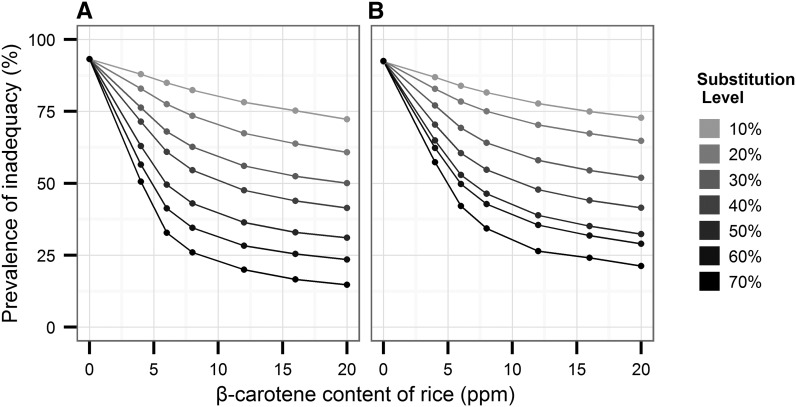FIGURE 1.
Simulations of the potential impact of biofortified β-carotene rice on the prevalence of inadequate vitamin A intake in Bangladeshi women and young children from 2 rural districts. Various scenarios are depicted in the graphics, showing population adoption rates ranging from 10% to 70% of biofortified rice and ppm levels of β-carotene ranging from 0 to 20 ppm. Simulations were conducted for nonpregnant, nonlactating women of reproductive age (14–50 y old) (A) and nonbreastfeeding children 1–3 y old (B). The Institute of Medicine’s estimated average requirements of vitamin A for each age group were used to calculate probability of inadequate intakes. ppm, parts per million.

